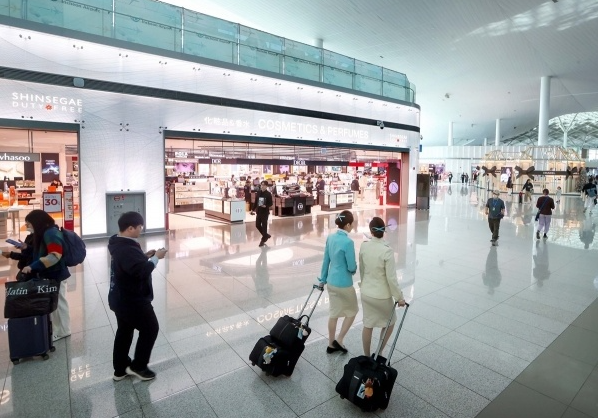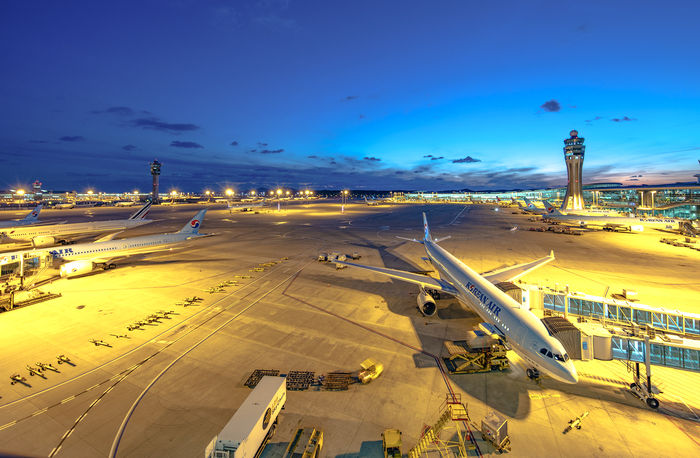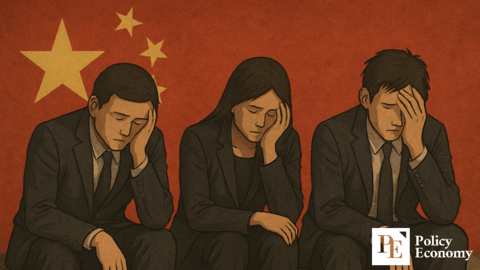Duty-Free Stores vs. Airport: Tensions Escalate over Rent Adjustments — Unprecedented Shutdown Looms
Input
Modified
Shinsegae and Shilla File Rent Adjustment Petitions in Court Incheon Airport Corporation Maintains Stance of Non-Attendance at Second Mediation Duty-Free Operators Warn of Inevitable Withdrawal if Talks Collapse

The prolonged dispute between duty-free operators and the Incheon International Airport Corporation (hereinafter referred to as “the Corporation”) over rent adjustment has escalated into a high-stakes standoff. Despite the court taking proactive mediation steps, including commissioning an accounting firm for valuation, the Corporation maintains that it cannot accept the rent reduction request, citing fairness concerns. With monthly losses reaching hundreds of millions of dollars, duty-free operators are now openly threatening to pull out entirely. Industry observers warn that if unresolved, the situation could result in the unprecedented shutdown of duty-free operations at Incheon Airport.
$6 Million in Monthly Losses Prompt Risky Exit Strategy
According to the duty-free industry on August 1, legal representatives for Shinsegae Duty Free and Shilla Duty Free stated, “Although both companies have eight years remaining on their Incheon Airport duty-free operation contracts, they are incurring substantial losses due to unsustainable rent levels. If mediation fails, both companies will withdraw from Incheon Airport.”
In January, Shinsegae and Shilla requested a rent reduction from the Corporation, which was rejected. The two operators subsequently filed for civil mediation with the Incheon District Court in April and May, respectively. Citing mounting deficits, they exercised their right to seek a 40% reduction in rent for their cosmetics, perfume, liquor, and tobacco stores located in Terminals 1 and 2.
The court held the first mediation session on June 30 and scheduled a second session for August 14. It also commissioned Samil PwC to conduct a valuation of appropriate rental levels. Such external appraisals are typically requested by courts to obtain expert opinions for making informed decisions. The duty-free sector interprets the court’s move as a clear indication of its intention to mediate.
The background to the operators' mediation request lies in persistent financial losses. Previously, Incheon Airport used a fixed rent model, but in 2023, it transitioned to a variable model based on the number of passengers multiplied by a per capita fee. Given that monthly passenger traffic averages around 3 million, each operator faces monthly rent of approximately $300 million. This represents 18% and 11% of last year’s total sales for Shinsegae ($2.06 billion) and Shilla ($3.28 billion), respectively.
While initially considered a more flexible and rational model than fixed rents, especially in responding to demand shifts, the post-pandemic reality has been less favorable. Despite increasing passenger numbers, duty-free spending has yet to recover, causing rent burdens to soar. Industry insiders cite reduced influx of Chinese group tourists, changing consumption patterns among individual domestic and foreign travelers, and a strong dollar as key factors behind declining foot traffic.
As a result, losses have only deepened. In Q1, Shinsegae and Shilla reported operating losses of $1.7 million and $6.7 million, respectively. In Q2, Shilla again posted a $11.3 million deficit, falling short of market expectations. Shinsegae is expected to report similar results. Assuming continued losses of this magnitude, both companies appear to have concluded that absorbing exorbitant penalty fees—estimated at around $200 million per store—may be less costly than persisting under the current conditions.

Incheon Airport Corporation: "Altering Contracts Could Constitute Breach of Duty"
The duty-free industry’s open discussion of a potential exit appears to be a direct response to the Corporation’s refusal to participate in rent reduction mediation. Ahead of the first mediation session, the Corporation submitted a statement to the court stating its inability to accept any mediation proposal. It has similarly indicated non-participation in the second session. Its reasoning: the existing rental framework was established through international bidding, and any mid-contract alteration due to business deterioration could constitute a breach of fiduciary duty.
Another concern stems from the airport’s revenue structure. Duty-free rent accounts for nearly 40% of Incheon Airport’s total revenue. In contrast, airports such as London Heathrow and Amsterdam Schiphol derive 60% of their income from aviation-related services, while Incheon garners only 30% from such sources. Duty-free rent, therefore, forms a financial backbone of the airport’s operations. One industry official noted, “Incheon Airport’s ability to maintain global competitiveness and deliver premium passenger services has been significantly underpinned by non-aviation revenue, including duty-free rent.”
This structural dependency is also tied to government policy. Under regulatory constraints, the Corporation has kept passenger usage fees fixed at $17 for 20 years. By comparison, London Heathrow charges $93, and Japan’s Narita Airport exceeds $30. This disparity partly explains the Corporation’s heavy reliance on duty-free rent. While sustainable during boom times for the duty-free sector, the current survival crisis paints a starkly different picture. If rent erodes duty-free competitiveness, Incheon Airport itself becomes vulnerable. Declining retail revenues would hamper infrastructure investment and degrade service quality.
Duty-Free Withdrawal Would Harm Airport Too — Need for Mutual Survival
Issues of fairness are also being raised by rival bidders who lost to Shinsegae and Shilla’s higher rent proposals. Notably, Lotte Duty Free withdrew from Incheon in 2018 after the THAAD dispute with China led to reduced Chinese tourist traffic, making rent unaffordable. Similar concerns apply to other airport tenants such as food & beverage vendors, convenience stores, and banks.
A Corporation official said, “The current rent model was clearly stated in the duty-free RFP, and both companies agreed to it. Even if we follow the court’s mediation, it could result in future legal disputes.” The official further emphasized, “Under the National Contracts Act and tenancy laws, specific conditions must be met to allow for rent reductions. The industry’s argument about business downturns doesn’t meet those criteria.”
While the Corporation’s concerns about breach of fiduciary duty and fairness are understandable, its refusal to engage in the mediation process has drawn criticism. Industry observers argue that once duty-free operators were brought to the negotiating table via court intervention, the Corporation should also see the process through to the end.
If the Corporation ultimately refuses to attend the second mediation session, talks are expected to collapse. In that event, the duty-free operators' remaining options would be withdrawal and filing a formal lawsuit. It remains uncertain whether they will pursue litigation, given the high legal costs. However, a full exit would deal a significant blow to the Corporation as well. A new bidding process would likely result in drastically lower rent bids, and the airport’s status as a global hub could be severely undermined.





















